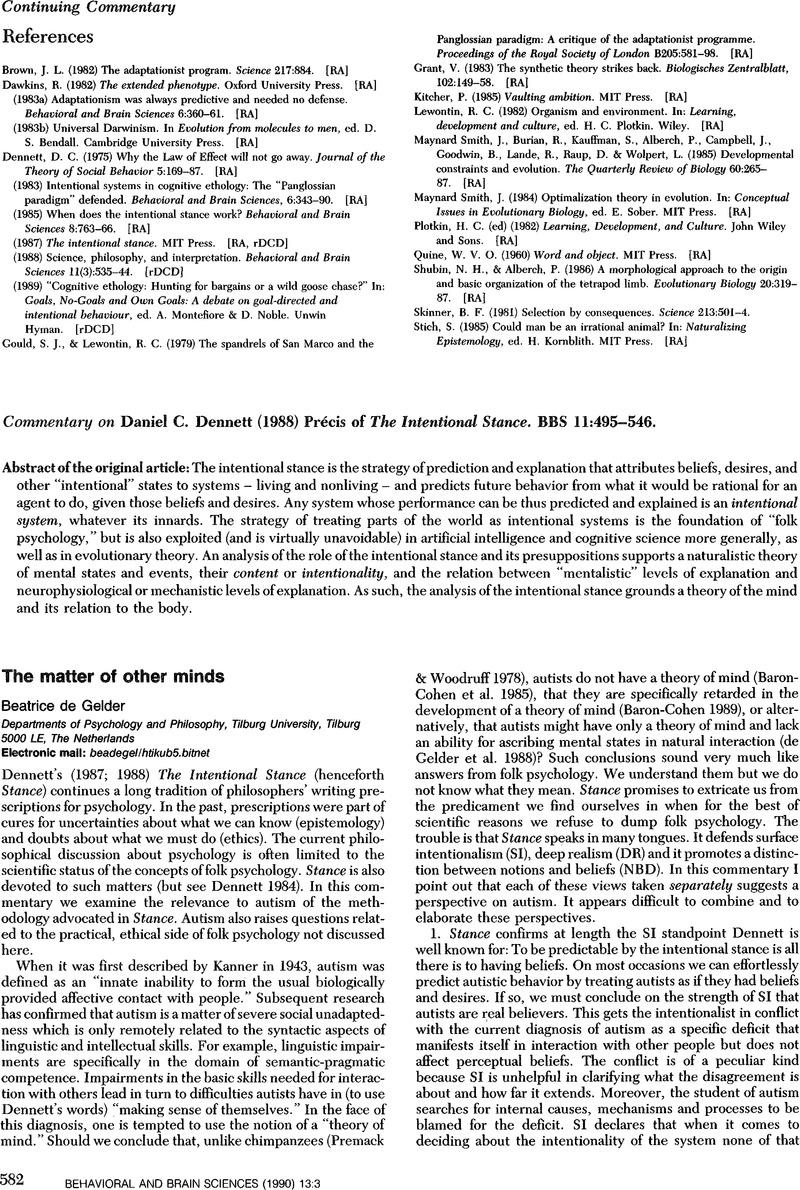No CrossRef data available.
Article contents
Abstracting from mechanism
Published online by Cambridge University Press: 19 May 2011
Abstract
An abstract is not available for this content so a preview has been provided. Please use the Get access link above for information on how to access this content.

- Type
- Author's Response
- Information
- Copyright
- Copyright © Cambridge University Press 1990
References
Baron-Cohen, S. (1989) The autistic child's theory of mind: A case of specific developmental delay. Journal of Child Psychology and Psychiatry. [BDG]CrossRefGoogle ScholarPubMed
Baron-Cohen, S., Leslie, A. & Frith, U. (1985) Does the autistic child have a theory of mind? Cognition 21:37–46. [BDG]CrossRefGoogle ScholarPubMed
De Gelder, B. (1987) On not having a theory of mind. Cognition 27(3):285–90. [BDG]CrossRefGoogle ScholarPubMed
De Gelder, B. & Van der Heide, L. (in press) The fragility of autistic discourse. In: Discourse on the construction of language and self. Harvester Press.Google Scholar
Dennett, D. (1984) Elbow room: The varieties of free will worth wanting. Bradford Books. [BDG]Google Scholar
Dennett, D. (1988) Science, philosophy, and interpretation. Behavioral and Brain Sciences 11(3):535–44. [rDCD, BDG]CrossRefGoogle Scholar
Premack, D. (1988) Intentionality: How to tell Mae West from a crocodile. Behavioral and Brain Sciences 11(4):522. [rDCD]CrossRefGoogle Scholar
Premack, D. & Woodruff, G. (1978) Does the chimpanzee have a theory of mind? Behavioral and Brain Sciences 1:515–26. [BDG]CrossRefGoogle Scholar


